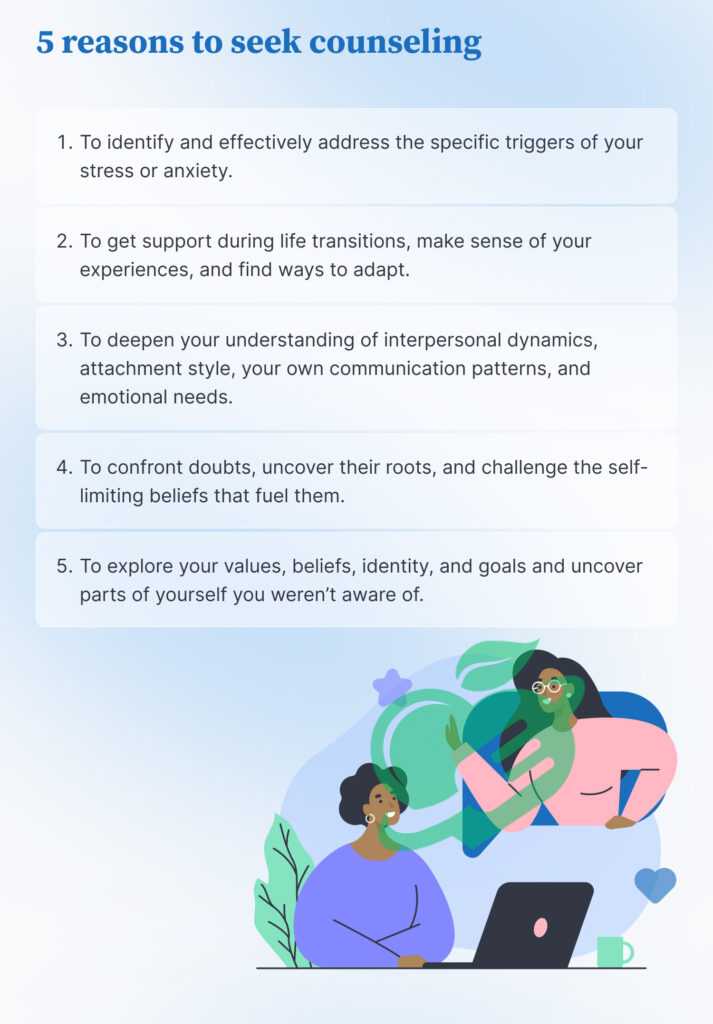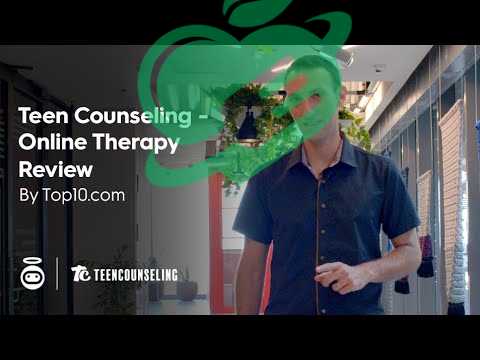The Importance of Teen Counseling: Expert Advice

Definition of Teen Counseling
Teen counseling, often referred to as adolescent therapy, is a specialized form of mental health support designed specifically for young individuals between the ages of 12 and 18. It involves a therapeutic relationship between a licensed counselor or therapist and the teenager, utilizing various techniques to address emotional, behavioral, and psychological challenges. The primary objective of teen counseling is to provide a safe and confidential space where teens can openly express their feelings, thoughts, and concerns without judgment. This form of therapy can integrate multiple approaches, including talk therapy, art therapy, and cognitive behavioral techniques, tailored to meet the unique needs of each adolescent.
Why Teen Counseling is Important
The effects of adolescence can be overwhelming, and many teens face challenges that can impact their mental health and well-being. Here are some reasons why teen counseling is crucial:
- Navigating Changes: Adolescence involves significant emotional and physical changes that can lead to confusion. Counseling guides during these tumultuous times.
- Building Resilience: Counselors help teens develop coping strategies to handle stress, anxiety, and peer pressure, fostering resilience and self-esteem.
- Enhancing Communication: Teen counseling often aids in improving communication skills, making it easier for adolescents to articulate their feelings and build healthy relationships.
- Personal Development: By engaging in counseling, teens can discover their identities, values, and goals, giving them a clearer direction in life.
For instance, a teenager struggling with anxiety about school can greatly benefit from counseling. Through one-on-one sessions, they might learn to identify their triggers, develop coping strategies, and ultimately feel more empowered to tackle their challenges head-on. In summary, understanding the definition and significance of teen counseling lays a solid foundation for recognizing how crucial it can be for fostering emotional health in young individuals. As we delve further into the benefits and common issues addressed in counseling, the importance of this resource becomes even more evident.
Read also: Understanding the Importance of Mental Health First Aid

Benefits of Teen Counseling
One of the most significant benefits of teen counseling is the emotional support it provides. Adolescents often grapple with intense feelings, whether anger from family conflicts, sadness from friendships that have soured, or anxiety about academic pressures. In such situations, having a dedicated professional to talk to can be a lifeline. Imagine a teenager named Jake who felt isolated due to his struggles with fitting in at school. After starting counseling, he found a safe space to express his feelings openly. With the help of his counselor, Jake began to understand that his emotions were valid and that he was not alone in navigating the complexities of adolescence. Through regular sessions, he gained insights into his feelings and developed a greater sense of self-acceptance. Key components of the emotional support offered in teen counseling include:
- Active Listening: Counselors provide a non-judgmental ear, making teens feel heard and valued.
- Validation of Feelings: Counselors help adolescents understand that their feelings are legitimate, which is crucial for their emotional development.
- Safe Environment: Creating a safe space where teens can express themselves freely is essential for building trust and rapport.
Coping Skills Development
Another remarkable aspect of teen counseling is the emphasis on developing coping skills. Adolescence can be filled with stressors, ranging from academic pressures to social challenges. Counselors equip teens with effective strategies to manage these pressures. For instance, Sarah, a high school sophomore, faced overwhelming anxiety about upcoming exams. During her counseling sessions, she learned several techniques to cope, including:
- Cognitive Restructuring: Identifying and challenging negative thought patterns.
- Mindfulness Practices: Incorporating techniques such as deep breathing and meditation to manage anxiety.
- Problem-Solving Skills: Enhancing her ability to break down stressors into manageable steps.
By cultivating these coping skills, Sarah not only faced her exams with confidence but also equipped herself to handle future challenges more effectively. Overall, the emotional support and coping skills development that teen counseling offers can pave the way for healthier emotional regulation and resilience. This sets the stage for lasting positive change in a teen’s life.

Common Issues Addressed in Teen Counseling
Anxiety is one of the most prevalent issues teens face, often manifesting as excessive worry about school, friendships, or even the future. Many adolescents, like Alex, find themselves feeling constantly overwhelmed. After struggling in silence, Alex decided to seek help through counseling. In his sessions, he learned to identify specific triggers of his anxiety and developed techniques to manage his responses.
- Coping Strategies: Counselors often provide tailored strategies such as mindfulness exercises, journaling, and visualization techniques to help teens cope with anxiety effectively.
- Relaxation Techniques: Teaching relaxation exercises like deep breathing or progressive muscle relaxation can empower teens to take control when anxious feelings arise.
These tools not only aid in immediate stress management but also build resilience for future challenges.
Depression and Mood Disorders
Depression is another serious issue that many teens may struggle with, sometimes without even realizing it. Symptoms such as persistent sadness, lack of motivation, and withdrawal from activities can signal underlying mood disorders. For instance, Emily, a once vibrant young girl, found herself retreating from her friends and hobbies due to depression. Through counseling, she learned about her feelings, which helped her understand that seeking help was a sign of strength, not weakness.
- Therapeutic Techniques: Therapists often utilize cognitive-behavioral approaches or mindfulness practices to help teens reframe negative thoughts and build a more positive outlook.
- Support Systems: Counselors guide teens in fostering connections with friends and family, reinforcing the importance of a support system while navigating their feelings.
Family Conflicts and Communication
Family conflicts can intensify during adolescence, leading to miscommunication and resentment. Counselors often address these dynamics to promote healthier relationships. Take the example of Liam, who often clashed with his parents over independence issues. Through counseling, he learned to articulate his feelings and concerns effectively, fostering better understanding within his family. Key areas of focus in this context include:
- Improving Communication: Counselors teach teens and their families effective communication techniques to express their thoughts and feelings constructively.
- Conflict Resolution Skills: Equipping teens with the tools to address and resolve conflicts helps in strengthening family bonds.
By addressing these common issues in teen counseling, young individuals find a pathway to navigate their challenges more effectively, paving the way for healthier relationships and emotional well-being.
Read also: From Panic to Recovery: Dealing with Anxiety Attack Hangover

Approaches and Techniques in Teen Counseling
Cognitive Behavioral Therapy, commonly known as CBT, is a widely used approach in teen counseling. It focuses on identifying and changing negative thought patterns that can lead to harmful behaviors and emotions. For example, a teen like Mia might think, “I’m a failure because I didn’t make the basketball team.” Through CBT, she learns to challenge that belief, understanding that one setback doesn’t define her worth.
- Structured Sessions: CBT typically involves structured sessions where teens learn to recognize their thought patterns.
- Homework Assignments: Counselors often assign practical exercises for teens to apply what they learn outside of therapy, reinforcing skills and strategies in real-life situations.
Dialectical Behavior Therapy (DBT)
Dialectical Behavior Therapy, or DBT, is another effective approach tailored for teens dealing with intense emotions and self-destructive behaviors. Originally developed for individuals with borderline personality disorder, it’s now widely used for various issues, including mood swings and relationship conflicts. For example, Lucas, who struggled with anger management, found DBT helpful in learning how to regulate his emotions without resorting to outbursts.
- Mindfulness Practices: DBT emphasizes mindfulness, teaching teens to stay present and reduce impulsivity.
- Interpersonal Effectiveness: This technique helps improve communication skills and strengthen relationships, enabling teens to express needs while respecting others.
Play Therapy for Adolescents
For younger teens or those who find it hard to articulate their feelings, play therapy can be tremendously beneficial. This approach allows adolescents to express themselves through play, which often reveals underlying thoughts and emotions. For instance, Jamie, who was reluctant to speak about his family issues, found it easier to express himself through role-playing games during therapy sessions.
- Expressive Tools: Counselors may use toys, games, and creative activities to engage teens more comfortably.
- Therapeutic Environment: The relaxed atmosphere encourages teens to open up in ways that traditional talk therapy may not facilitate.
Art Therapy as a Creative Outlet
Art therapy is another fantastic option for teens looking to express their feelings without spoken words. This technique allows adolescents to communicate through various artistic mediums—drawing, painting, or sculpting. For example, Sarah, who struggled with depression, found solace in expressing her emotions through painting.
- Emotional Expression: Art therapy can facilitate emotional exploration and self-discovery, helping teens articulate what they may find difficult to say.
- Visual Representation: Visual art can serve as a powerful tool for teens to understand their emotions. 1
In summary, each of these approaches and techniques offers unique benefits, enabling counselors to tailor their methods to meet the specific needs of each teen, ultimately fostering a path towards healing and growth.
Read also: From Theory to Reality: Exploring the Feasibility of Blood Tests for Anxiety Disorders.

How can Parents Support their Teens in Counseling?
Parents and guardians play a pivotal role in their teens’ counseling journey. Their support can significantly influence how effective counseling sessions are and can greatly enhance the overall experience for adolescents. For example, consider Jennifer, whose son David started attending therapy for anxiety. Instead of being dismissive, she made it a point to show understanding and involvement throughout the process. Here are some ways parents can support their teens in counseling:
- Encouragement to Attend: Actively encourage your teen to attend counseling sessions by discussing the benefits and normalizing seeking help.
- Open Communication: Foster an open dialogue about feelings and experiences regarding counseling. Let them know they can talk about it whenever they’re ready.
- Positive Reinforcement: Celebrate the small victories and progress the teen makes in therapy, reinforcing the importance of their efforts.
- Limiting Judgment: Create an atmosphere devoid of judgment regarding the emotions or experiences shared by the teenager. This reinforces trust and allows for deeper exploration in therapy.
Building Trust with Teen Counselors
Building trust between parents, guardians, and teen counselors is vital for creating a supportive therapeutic environment. When parents actively collaborate with counselors, it can significantly enhance the therapeutic process. For instance, when John’s parents took the time to meet with his counselor, they learned how best to support him, which strengthened their family dynamic during difficult times. Key practices for building that trust include:
- Open Lines of Communication: Maintain regular communication with the counselor to understand the goals and methods being employed in therapy.
- Respecting Confidentiality: Acknowledge that some parts of the counseling process may require confidentiality, which fosters a safe space for the teen to express themselves.
- Participating in Family Sessions: If applicable, sit in on family counseling sessions to work through dynamics together and gain insight into your teen’s experiences.
By playing an active role in their teen’s counseling, parents and guardians not only provide essential support but also contribute to establishing a strong foundation of trust that enhances the therapeutic experience and leads to positive outcomes.
Read also: Chest Symptoms: Common Causes & How to Get Relief

Recognizing Signs that a Teen may Benefit from Counseling
Understanding when to seek professional help for a teen can be daunting, yet recognizing specific signs can pave the way for timely intervention. It’s essential not to overlook these indicators, as addressing mental health concerns early can profoundly impact a teen’s well-being. For instance, Mia was a bright student who suddenly became withdrawn and uninterested in her once-loved activities. Her parents noticed changes that included:
- Persistent Sadness: Experiencing prolonged episodes of sadness that last for weeks.
- Withdrawal from Social Activities: Avoiding friends or family gatherings that the teen once enjoyed.
- Changes in Academic Performance: A noticeable decline in school performance or lack of motivation to complete assignments.
- Emotional Outbursts: Frequent irritability, anger, or unusual emotional responses to minor triggers.
Being aware of these signs can help parents and guardians decide when it might be time for their teen to speak with a counselor.
Red also: What leads to Type 2 Diabetes?
Destigmatizing Mental Health Treatment for Teens
Another vital aspect of encouraging teens to seek help is the ongoing work of destigmatizing mental health treatment. Unfortunately, misconceptions about therapy often lead to feelings of shame or embarrassment among adolescents. Take the case of Ethan. After realizing he struggled with anxiety, he hesitated to seek help for fear of what his peers might think. However, when a teacher discussed the benefits of mental health resources openly in class, Ethan began to feel more comfortable with the idea. To help destigmatize mental health treatment:
- Normalize Counseling: Discuss counseling as a regular and healthy practice, just like visiting a doctor for physical illnesses.
- Share Success Stories: Highlight stories of well-known figures or local individuals benefiting from counseling to showcase positive outcomes.
- Foster Open Discussions: Encourage open discussions about mental health in the home and school environments to create a culture of acceptance and understanding.
By recognizing the signs that a teen may need help and fostering an environment where mental health treatment is seen as a strength, parents, and guardians can play a crucial role in guiding adolescents toward the resources they need for a healthier, happier life.
Read also: Is POTS Disease Hereditary? Find Out the Truth!

Real-life Experiences of Teens Who Benefited from Counseling
The impact of teen counseling is often best illustrated through the success stories of those who have undergone the process. These real-life experiences illuminate the transformative power of therapy in young lives. Take the case of Emma, a 16-year-old who struggled with severe anxiety and panic attacks. Before counseling, Emma felt paralyzed by her fears, often missing school and social events. However, through consistent sessions with a compassionate counselor, she gradually learned coping strategies and mindfulness techniques. Emma shared, “I began to see my anxiety as something I could manage instead of something that controlled me.” Today, she confidently attends school and participates in extracurricular activities, crediting counseling as a life-changing experience. Another inspiring story is that of Noah, a teenager who faced significant family conflicts. Labeled as rebellious, he felt misunderstood and isolated. With the help of family counseling, Noah not only learned to communicate his feelings more effectively but also fostered a healthier relationship with his parents. He remarked, “Counseling helped us listen to each other. It’s like we finally found common ground.”
Testimonials from Parents and Families
The positive effects of teen counseling extend beyond the individual and often resonate deeply with families. Many parents express immense relief and gratitude for the changes they’ve observed in their children. For instance, Lily’s mother shared, “After my daughter started therapy, I noticed a dramatic change. She smiles more, engages in family activities, and has developed a better attitude toward challenges.” Another parent, Mark, reflected on the journey, saying, “I was hesitant about counseling at first, but seeing my son open up and express himself has been remarkable. It’s strengthened our family bond while providing him the tools he needs to navigate his emotions.” These testimonials highlight how counseling not only fosters personal growth in teens but also promotes healing and understanding within families. Ultimately, the success stories of both teens and their families illuminate the invaluable benefits of seeking counseling, reinforcing that it is never too late to find healing and support.

Recap of the Importance of Teen Counseling
As we wrap up our exploration of teen counseling, it’s essential to underscore just how critical this resource can be for adolescents navigating the tumultuous years of their teenage lives. Counseling provides a haven for teens to express themselves, develop coping skills, and address common issues like anxiety, depression, and family conflicts. Real-life success stories, like those of Emma and Noah, illustrate that counseling not only fosters personal growth but also strengthens family dynamics. The right support can empower teens to handle their emotions and build resilience, laying a strong foundation for their future. By facilitating open conversations about mental health, parents and guardians can help destigmatize these experiences. It’s important to recognize the signs that a teen may need help and to approach the topic of counseling with understanding and encouragement.
Guidance on Finding a Suitable Teen Counselor
If you’ve determined that counseling could benefit your teen, it’s crucial to find a suitable counselor. Here are some practical steps to guide you on this journey:
- Research Credentials: Look for counselors who are licensed and have experience working specifically with adolescents.
- Ask for Recommendations: Reach out to friends, family, or school resources for referrals to reputable professionals.
- Assess Compatibility: Schedule initial consultations to determine if your teen feels comfortable with the counselor. A good rapport is essential for effective therapy.
- Discuss Treatment Approaches: Query the counselor about their methods and philosophies to ensure they align with your teen’s needs and preferences.
- Check Availability and Fees: Ensure that the counselor’s schedule aligns with your availability and inquire about session costs and any insurance coverage options.
Frequently asked questions
What therapy is best for adolescents?
- Dialectical Behavior Therapy (DBT)
- Interpersonal Therapy (IPT)
- Acceptance and Commitment Therapy (ACT) is a form of psychotherapy that encourages individuals to accept their thoughts and feelings rather than fighting or feeling guilty about them. It promotes a commitment to personal values and behavioral changes that lead to a more meaningful and fulfilling life.
- Exposure Therapy.
- Group Therapy.
- Family Therapy.
- Play or Art Therapy.
- Online Therapy. 2.
How do I know if my kid needs therapy?
- Bedwetting (when already night trained)
- Frequent temper tantrums.
- Separation anxiety and clinginess.
- Excessive anxiety and fearfulness.
- Language regression refers to the use of simplified speech or “baby talk.” 3.
Does age matter in a therapist?
Participants did not show a clear preference for either older or younger psychotherapists. However, as anticipated, there was a preference for older therapists when dealing with “universal problems” such as the death of a friend, natural disasters, or past conflicts. 4.
How old is the youngest therapist?
A remarkable 13-year-old psychologist from Mexico is making waves. In Mexico City, when asked about her status as one of the country’s most influential women at such a young age, Dafne Almazan chuckles and replies, “I feel somewhat proud of it.” 5.
Can a therapist change your life?
Therapy provides you with tools to handle symptoms and enhance your overall health. Developing into Your Best Self: Therapy goes beyond merely addressing issues; it focuses on personal development. It involves building resilience, gaining insights from your experiences, and creating a life that feels significant and rewarding. 6.
Why does my therapist watch my hands?
Therapists can gain insight into clients’ emotions, anxieties, or defenses by closely watching their hand gestures. 7.
What not to say to a psychiatrist?
5 Things to Never Tell Your Therapist
- Make an effort to be honest with your therapist.
- Make an effort to share the entire story with your therapist, rather than just a portion of it.
- Avoid sharing information with your therapist that does not pertain to you.
- Avoid minimizing or overstating any mental health symptoms you may experience. 8.
What are the red flags in therapy?
They don’t pay attention to what you say and often cut you off. They pursue their objectives and assumptions regarding your treatment, showing little willingness to consider your perspective. Their conduct may be unethical, they have unclear boundaries, or they may not adhere to confidentiality rules. Additionally, they seek to form a friendship with you. 9.
Follow us for more updates and breaking news, as we provide you with everything new.
- talkspace ((↩))
- talkspace ((↩))
- allforkids ((↩))
- pmc ((↩))
- USAToday ((↩))
- beyondcounselingllc ((↩))
- psychiatreat ((↩))
- thriveworks ((↩))
- anesistherapycenter ((↩))




Your point of view caught my eye and was very interesting. Thanks. I have a question for you.
What is your question?